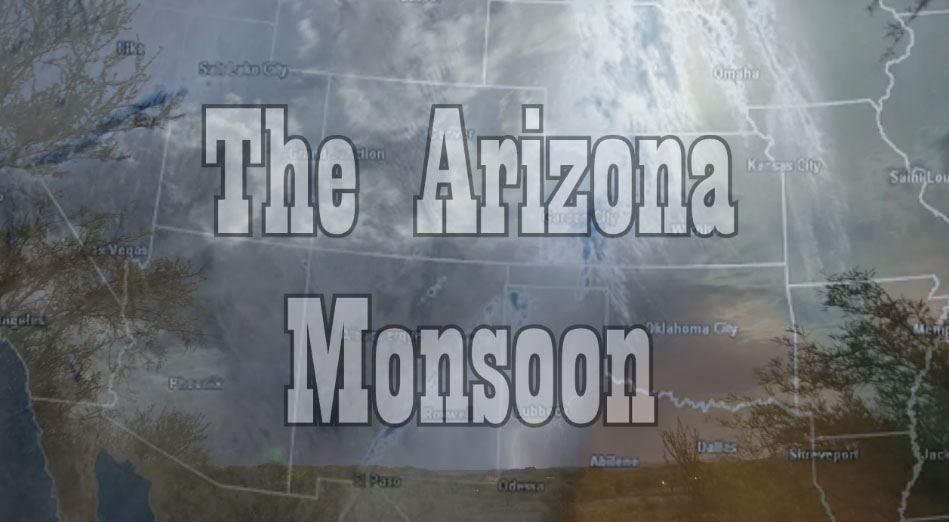In watching how June is going and what is being seen coming into the start of the monsoon season. June 15th marks the start of the monsoon season and we will see only the New Mexico zones really having an activity, along with Southeast Arizona. We had a good surge through Tucson in the beginning of the month and this brought average rainfall to the region, with some weather stations showing above average, depending where you were in relation to the thunderstorm cells. Most of the storms in June are high-based and create more of a dry lightning issue. Dry lightning is when little rain falls from the storms, but they pack a lot of lightning that starts wildfires.
CLICK HERE FOR THE VIDEO ON THE SOUTHWEST MONSOON
For this season, I calculate the four corners ridge to start showing itself around July 4th and a afterwards for 10 days or so. This should be enough to pump deeper moisture across the Desert Southwest. We may even see some activity from the monsoon all the way into California and Nevada. La Nina is in fully swing this Summer as I predicted beforehand (Click here to read that). This effect will allow some storms in the Eastern Pacific to form and a few will be strong. The combined development from those and the Atlantic Basin / Gulf of Mexico activity is bringing me to put the Monsoon in the average to above average category for this Summer in the Desert Southwest. Activity like this can also bring more easterly waves into California as well and as you know already I will be ready for forecast that when the time comes.
An active northern jet stream pattern into Canada will make the ridge elongated in later July and most of August. This elongation will flatten the southern end of the four corners ridge and move it into Utah. This may be just enough to bring an active month for August in all areas of the Southwest and West Coast States, even streaming all the way up through Oregon and Washington. Any interaction with easterly waves will be met with severe thunderstorms weak tornadoes.
The 2020 Monsoon will have a late end, probably extending a bit through the September 15th end dead-line.
For Southern California Weather Force Facebook – Click Here
For Arizona Weather Force – Click Here
For National Weather Force – Click Here

